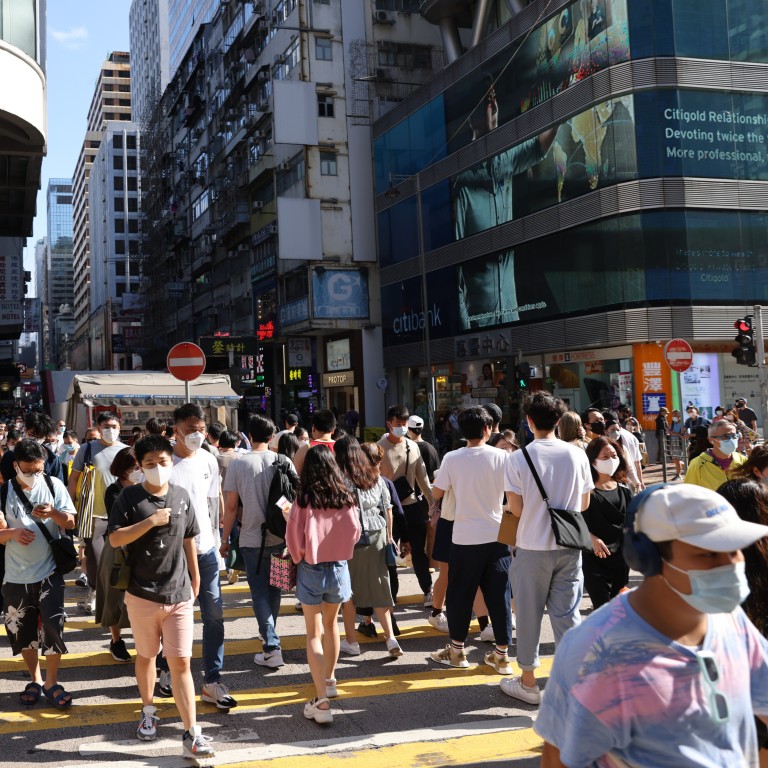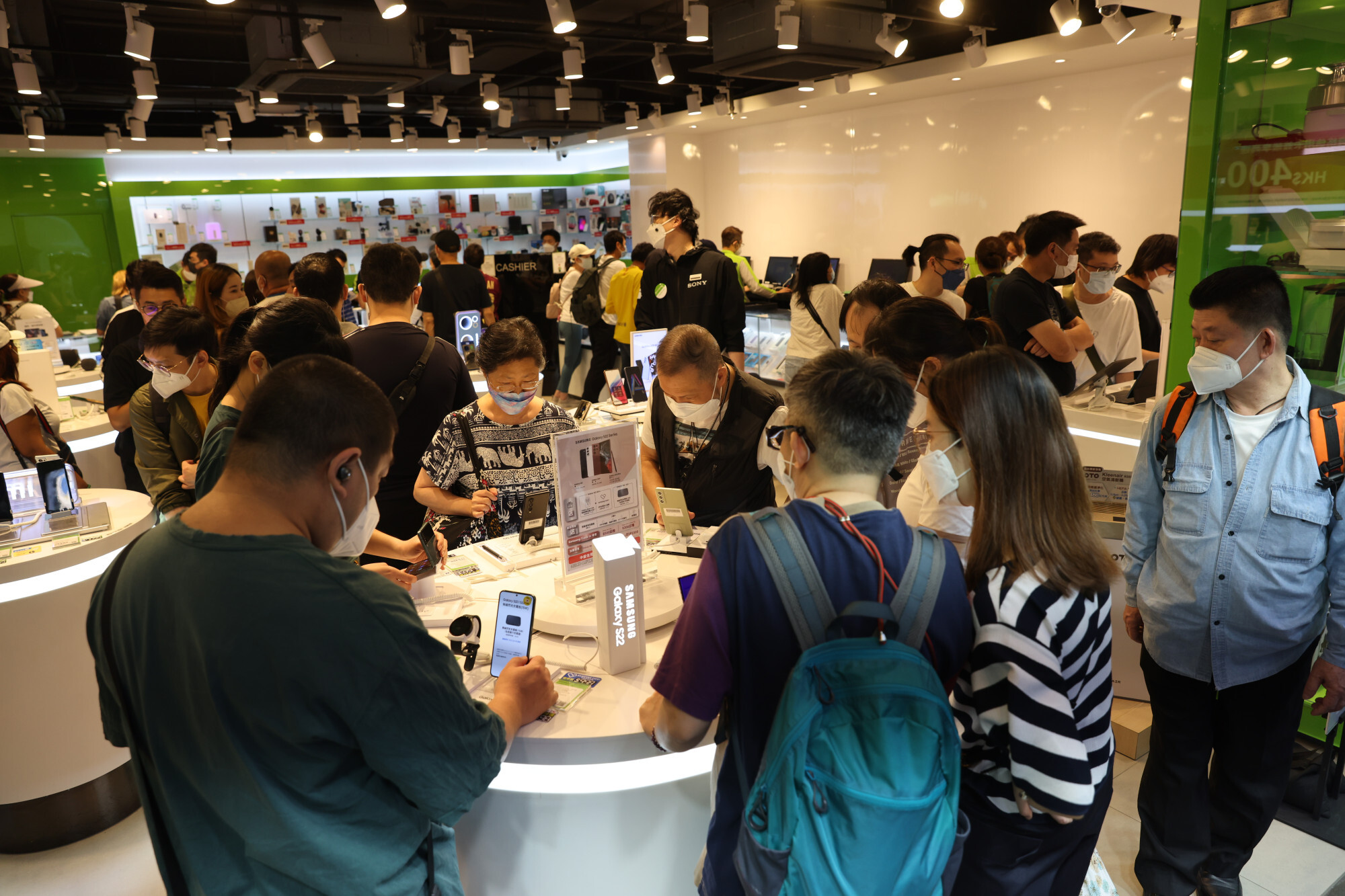
1 million Hongkongers received first round of e-vouchers through Octopus mobile app, says finance chief
- Figure marks nearly 40 per cent increase compared with last year, according to Financial Secretary Paul Chan
- Chan says government will launch inaugural retail green bond now worth HK$15 billion by end of month
One million residents received the first instalment of the government’s latest round of e-vouchers through the Octopus mobile app, a nearly 40 per cent increase over last year’s figure that signalled a growing acceptance of digital payment platforms in Hong Kong, the finance chief has said.
Financial Secretary Paul Chan Mo-po also revealed on Sunday that the government would launch its inaugural retail green bond now worth HK$15 billion (US$1.9 billion) by the end of the month after the initiative was delayed due to the Covid-19 pandemic.
The e-vouchers and the green bond were two key measures that Chan unveiled in his budget address last month.
The government began distributing the first half of HK$10,000 in digital vouchers aimed at spurring consumer spending to more than 6.3 million eligible residents last Thursday, putting the money into any one of four approved payment platforms: Octopus, Tap & Go, AlipayHK and WeChat Pay HK. The first tranche of coupons are valid until October 31.

Chan revealed that about 1 million out of the city’s 7.5 million residents collected their vouchers via the Octopus mobile app, a 37 per cent rise over last year’s figure.
“This reflected that we are already becoming used to convenient, digital [payment] methods,” he said. “[The scheme] not only benefited the public directly, but leveraged people’s consumption power to accelerate the digitalisation of the economy.”
Consumer sentiment was buoyed by the handouts, he said, adding the measure could speed up the recovery of the local economy following the expected easing of social-distancing rules later this month.
Sun Hung Kai Properties, which owns 15 shopping malls including apm, Tai Po Mega Mall and the World Trade Centre, said the sales of its merchants, especially electronic, jewellery and personal health product shops, had increased 20 to 30 per cent compared with last month.
The developer noted customers were spending more than they did last year when the first round of vouchers was dispersed, with each person spending about HKD$6,000 to HK$8,000 on average.
Hongkongers out to spend e-vouchers but businesses note weaker impact of scheme
Chan said the quota for the green bond was increased from HK$15 billion to as much as HK$20 billion upon oversubscription. The government decided to go ahead with the issuance after considering the resumption of numerous commercial activities through digital platforms amid the improving pandemic situation, he added.
The interest will be paid once every six months at a rate linked to inflation in Hong Kong, subject to a minimum rate of 2.5 per cent, up from 2 per cent for the planned sale in March.
The scheme was introduced by the government with an aim to improve the environment, combat climate change and transition to a low-carbon economy. The proceeds will be used exclusively to finance or refinance public works projects relating to renewable energy, pollution prevention and clean transport, among others.
Additional reporting by Nadia Lam

